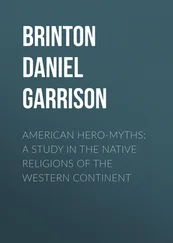It appears to me just as teleologic and divinatory as those I have previously named. It assumes Evolution as a law of the universe, whereas in natural science it is only a limited generalization, inapplicable to most series of natural events, and therefore of uncertain continuance in any series. The optimism which it inculcates is insecure and belongs to deductive, not inductive, reasoning. The mechanical theory on which it is based lacks proof, and is, I maintain, insufficient to explain motive, and, therefore, historic occurrences. The assumption that history is the record of a necessary and uninterrupted evolution, progressing under ironclad mechanical laws, is a preconceived theory as detrimental to clear vision as are the preoccupations of the theologian or the political partisan.
Any definition of evolution which carries with it the justification of optimism is as erroneous in history, as it would be in biology to assert that all variations are beneficial. There is no more certainty that the human species will improve under the operation of physical laws than that any individual will; there is far more evidence that it will not, as every species of the older geologic ages has succumbed to those laws, usually without leaving a representative.
I am aware that I am here in opposition to the popular as well as the scientific view. No commonplace is better received than that, “Eternal progress is the law of nature;” though by what process eternal laws are discovered is imperfectly explained.
Applied to history, a favorite dream of some of the most recent teachers is that the life of the species runs the same course as that of one of its members. Lord Acton, of Oxford, in a late lecture states that: “The development of society is like that of individual;” 5 5 A Lecture on the Study of History , p. 1 (London, 1895).
and Prof. Fellows, of the University of Chicago, advances the same opinion in the words, “Humanity as a whole developes like a child.” 6 6 See his article “The Relation of Anthropology to the Study of History,” in The American Journal of Sociology , July, 1895.
The error of this view was clearly pointed out some years ago by Dr. Tobler. 7 7 Ludwig Tobler, in his article “Zur Philosophie der Geschichte,” in the Zeitschrift für Völkerpsychologie , Bd. XII., s. 195.
There has been no growth of humanity at large at all comparable to that of the individual. There are tribes to-day in the full stone age, and others in all stages of culture above it. The horizons of progress have been as local as those of geography. No solidarity of advancement exists in the species as a whole. Epochs and stadia of culture vary with race and climate. The much talked of “law of continuity” does not hold good either in national or intellectual growth.
Such are the criticisms which may be urged against the historical methods now in vogue. What, you will ask, is offered in their stead? That which I offer is the view of the ethnologist. It is not so ambitious as some I have named. It does not deal in eternal laws, nor divine the distant future. The ethnologist does not profess to have been admitted into the counsels of the Almighty, nor to have caught in his grasp the secret purposes of the Universe. He seeks the sufficient reason for known facts, and is content with applying the knowledge he gains to present action.
Before stating the view of the ethnologist, I must briefly describe what the science of Ethnology is. You will see at once how closely it is allied to history, and that the explanation of the one almost carries with it the prescription for the other.
Конец ознакомительного фрагмента.
Текст предоставлен ООО «ЛитРес».
Прочитайте эту книгу целиком, купив полную легальную версию на ЛитРес.
Безопасно оплатить книгу можно банковской картой Visa, MasterCard, Maestro, со счета мобильного телефона, с платежного терминала, в салоне МТС или Связной, через PayPal, WebMoney, Яндекс.Деньги, QIWI Кошелек, бонусными картами или другим удобным Вам способом.
In his epochal essay “Die Aufgabe des Geschichtschreibers.” Gesammelte Werke , Bd. I., s. 13. It was republished with a discriminating introduction by Professor Steinthal in Die Sprachphilosophischen Werke Wilhelm von Humboldt’s (Berlin, 1883).
“Der Zweck-Begriff bewirkt nur sich selbst, und ist am Ende was er im Anfange, in der Unsprünglichkeit, war.” Encyclopädie der philosophischen Wissenschaften. Theil, I., § 204.
“Die Weltgeschichte ist der blosse Ausdruck einer vorbestimmten Entwicklung.” (Quoted by Lord Acton.)
“Die Menschheit hat sich aus natürlicher, tierischer Grundlage auf rein natürliche mechanische Weise entwickelt.” Anthropolgische Beiträge , s. 21.
A Lecture on the Study of History , p. 1 (London, 1895).
See his article “The Relation of Anthropology to the Study of History,” in The American Journal of Sociology , July, 1895.
Ludwig Tobler, in his article “Zur Philosophie der Geschichte,” in the Zeitschrift für Völkerpsychologie , Bd. XII., s. 195.












